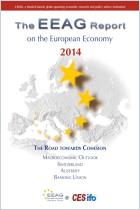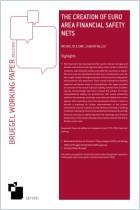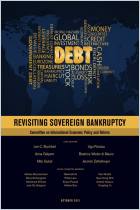
State Transformation and the European Integration Project
Lessons from the Financial Crisis and the Greek Paradigm
Read or listen offline
Amazon KindleRecommendation
Integration or disintegration? The nonlinear trajectory of the euro zone since its inception would seem to pose this question, particularly in the wakes of the 2008 global financial crisis and the subsequent sovereign debt debacle. For some member states, indebtedness has dug an ever-widening and deepening hole, and they are unable to extricate themselves from it. The economic and social welfare of the populace are at stake. This in-depth analysis by professor and Greek parliament member Evangelos Venizelos, though written in political and legal economese, is an astute study of the tortuous challenges of European integration. getAbstract recommends it to policy makers, economists, financial managers and historians.
Summary
About the Author
Evangelos Venizelos, a member of the Greek parliament and a professor of constitutional law at the Aristotle University of Thessaloniki, has served twice as Greece’s deputy prime minister and has held other top posts in government.




















Comment on this summary or Comenzar discusión